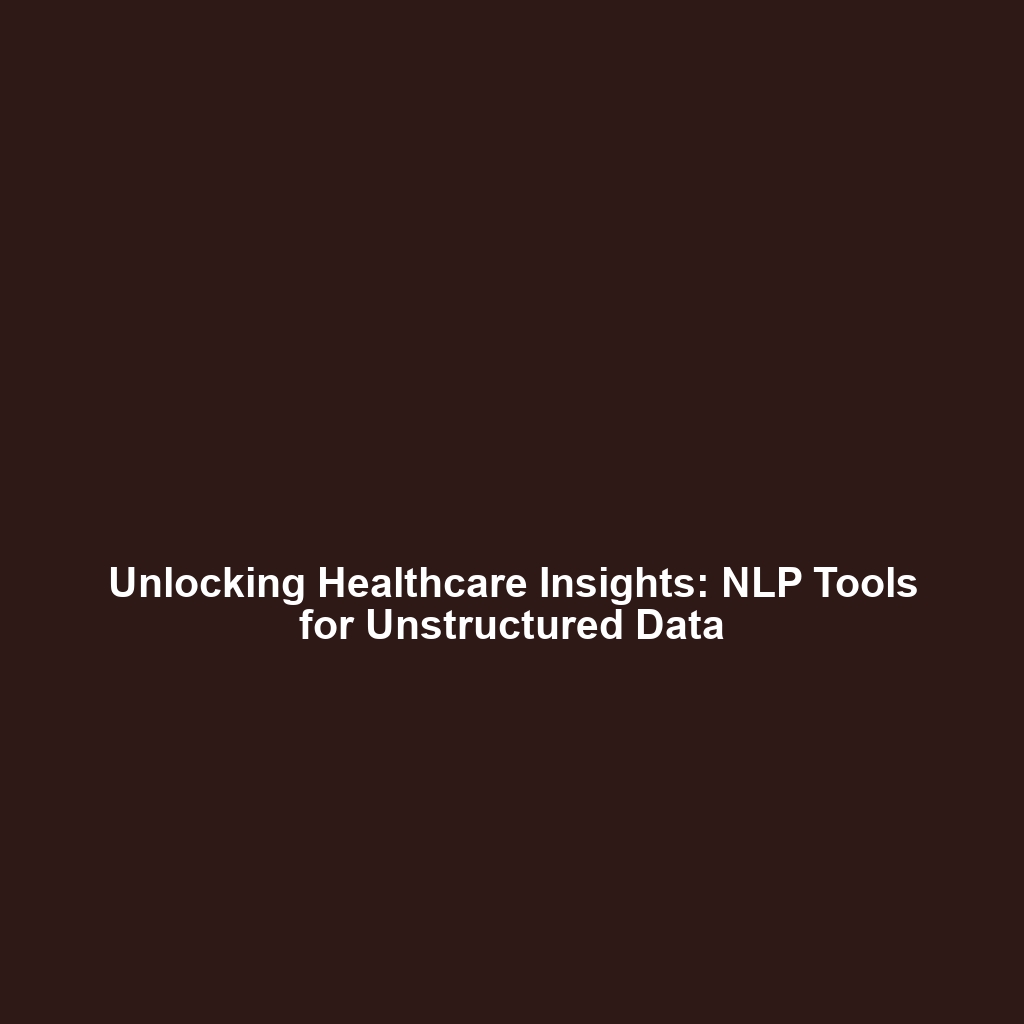Tools Like NLP Used to Extract Valuable Insights from Unstructured Medical Data
Introduction
In the rapidly evolving realm of AI in Healthcare, the ability to analyze and extract valuable insights from unstructured medical data is paramount. Tools like Natural Language Processing (NLP) have emerged as pivotal technologies facilitating this extraction. Unstructured data, which includes patient notes, medical records, and clinical studies, contains rich information yet remains largely untapped. By leveraging NLP, healthcare professionals can decode this wealth of information, improving patient outcomes and decision-making processes. This article delves into the significance of NLP within the landscape of healthcare AI, illustrating its utility and transformative potential.
Key Concepts
NLP is a branch of AI that focuses on the interaction between computers and human language. Understanding its core concepts is essential to grasp its role in healthcare:
Natural Language Processing Overview
- Tokenization: Breaking text into smaller units for easier analysis.
- Sentiment Analysis: Understanding the sentiment behind medical notes, which can guide patient care.
- Named Entity Recognition (NER): Identifying and classifying key information such as medications, diseases, and symptoms in unstructured data.
NLP in the Context of AI in Healthcare
NLP interfaces seamlessly with other AI technologies, such as machine learning and data mining, enhancing its power to extract actionable insights from vast amounts of healthcare data. The synergy between these technologies allows healthcare providers to improve diagnosis, personalize treatment plans, and optimize operational efficiency.
Applications and Real-World Uses
Tools like NLP have found significant applications within the realm of AI in Healthcare:
- Clinical Decision Support: NLP tools analyze unstructured notes for summarizing patient histories, aiding in clinical decisions.
- Predictive Analytics: By extracting insights from previous patient data, NLP helps in predicting future health risks.
- Patient Engagement: Analyzing feedback and patient interactions to enhance health service delivery.
- Research Facilitation: Assisting researchers in sifting through countless medical papers and clinical trials for pertinent information.
Current Challenges
Despite the advancements in NLP technology, challenges remain prevalent:
- Data Privacy: Compliance with regulations like HIPAA while using unstructured data.
- Data Quality: Ensuring the accuracy and reliability of unstructured data input.
- Interpretability: Making NLP models understandable to clinicians to build trust in decisions.
- Integration: Difficulty in integrating NLP tools into existing healthcare systems.
Future Research and Innovations
The field of NLP in healthcare is poised for remarkable innovations:
- Improved Algorithms: Development of more robust algorithms that understand context and sentiment nuances.
- Cross-Language NLP: Tools that can process data across different languages to support global healthcare.
- Real-Time Analysis: Implementing NLP systems that provide insights in real-time during clinical interactions.
Conclusion
In summary, tools like NLP are essential to unlocking the valuable insights hidden within unstructured medical data, thereby reinforcing the framework of AI in Healthcare. By overcoming current challenges and embracing future innovations, the potential for improvement in patient care, operational efficiency, and research capabilities continues to grow. For further insights into how technologies transform healthcare, explore our articles on machine learning in healthcare and data analytics in healthcare.

Leave a Reply